If you have been injured in an accident that occurred due to the negligent act of another, the law gives you the right to seek compensation for the losses resulting from your injuries. These losses are known as “damages.” Depending on the circumstances in your case, you may be able to collect compensation for a wide variety of damages.
In a Florida personal injury claim, damages are broken down into three categories:
- Compensatory/economic damages
- Non-economic damages
- Exemplary / Punitive damages
Compensatory/Economic Damages
Compensatory damages compensate plaintiffs for the economic losses resulting from their injuries. These are losses that you can assign an actual dollar amount to. The goal in awarding compensatory damages is to make the injured person “whole” again – to restore their lives back to way it was before the injury took place. Compensatory/economic damages include:
- Loss of earnings: Compensation for wages lost because you were/are unable to work due to your injuries.
- Loss of future earnings: Compensation for the wages you will lose because you are unable to return to work.
- Medical bills: Compensation to pay for your medical expenses.
- Cost of future medical care: Compensation to pay for ongoing medical expenses (treatments. medications, medical devices, therapy, etc.) required due to your injuries.
- Household expenses: Compensation for rent, mortgage, utilities, etc.
- Other economic losses caused by your injury: Cancelled trips, transportation costs, your spouse’s lost wages for the work they missed taking care of you while you were injured, etc.
Non-economic Damages
Non-economic damages are meant to compensate a person for the intangible losses suffered because of their injuries. For example, your injuries may leave you unable to perform the activities you used to engage in, such as playing with your children, driving, sports, outdoor activities, etc. Unlike compensatory damages, they can be difficult to calculate in terms of a precise monetary amount.
Many variables can factor into the amount of non-economic damages you can be awarded, including the seriousness of your injuries, the skills of the lawyer representing you, and the sympathies of a jury. As a result, the amount of non-economic damages awarded varies from case to case.
Non-economic damages include:
- Physical pain and suffering
- Mental and emotional anguish
- Loss of consortium – damages awarded when a spouse’s injuries prevent them from having normal marital relations
- Disfigurement and impairment
- Loss of companionship/affection/society – damages awarded when a person can no longer maintain a normal relationship with friends or family due to their injuries
- Loss of enjoyment of life – damages awarded when a person’s injuries prevent them from engaging in once-loved activities or otherwise enjoying life
Exemplary/Punitive Damages
Exemplary, or punitive, damages are awarded with the intent of punishing the negligent party for the intentional infliction of harm, or for recklessness which is the result of an intentional act, that resulted in an injury. Exemplary/punitive damages are rarely awarded in a Florida personal injury claim.
Answers to Your Frequently Asked Questions About Personal Injury Claims
If the Insurance Company Wants to Settle, Do I Need a Lawyer?
Insurance companies make money by paying out as little money on claims as they can get away with. This means that if you accept a settlement without first speaking with an attorney, you could be leaving money on the table.
If you are unable to work and you have bills piling up, it may be very tempting to take the initial offer. A year or two down the line, however, that offer may not seem as good if it doesn’t cover potential long term needs such as medical bills and work missed.
There are situations where a lawyer may not be necessary, such as if your injury is very minor. But it is highly recommended that you contact an experienced attorney as soon as possible if there is a serious injury or fatality, if you miss work, or if a commercial vehicle is involved.
How Long Do Personal Injury Lawsuits Usually Take?
Every case is different, so the easiest answer to this question is that the complexity of your case will determine how long it takes to reach a settlement.
It may take up to a year or more for a settlement agreement or jury verdict after your attorney files a personal injury lawsuit. During the discovery phase, both sides investigate the claim in depth. This process can include interviews, depositions, and requests for documents. If the case goes to trial, the court preparation can take months or even years in some cases.
Is it Ok to Post On Social Media While My Personal Injury Case is Ongoing?
You should proceed with extreme caution when using social media while a personal injury case is ongoing. At the very least, you should refrain from talking about your injury, posting pictures of your injury, or responding to anyone inquiring about it on social media. Contact your friends offline and ask them not to discuss your situation online.
Ideally, you should stay off social media altogether. Opposing attorneys have been known to use small, seemingly unrelated details, like pictures of a hike or a night out with friends, as evidence that you aren’t as injured as you say you are.
The Importance of Superior Legal Representation for Your Florida Personal Injury Claim
How much you recover in damages will depend on the quality of legal representation you have. Lutz personal injury attorney Tania Rivas and the staff of the Rivas Law Group possess the knowledge and expertise to gather the evidence needed to establish proof of your Florida personal injury claim, effectively negotiate with the defendant’s insurance company, and if necessary, take your case to trial. Tania is dedicated to getting her clients every dollar they deserve for the damages caused by the negligent act of another.
If you have been hurt in an accident that was somebody else’s fault, call the Rivas Law Group to schedule a free consultation meeting with one of our experienced Central Florida personal injury lawyers. We serve clients in Lutz, Winter Haven and Lakeland.
We want to listen to your story and provide helpful, professional feedback on the best way to pursue your case. We accept personal injury cases on a contingency basis, which means there are no up- front costs to our clients and you only pay for our services if and when we win your case.



